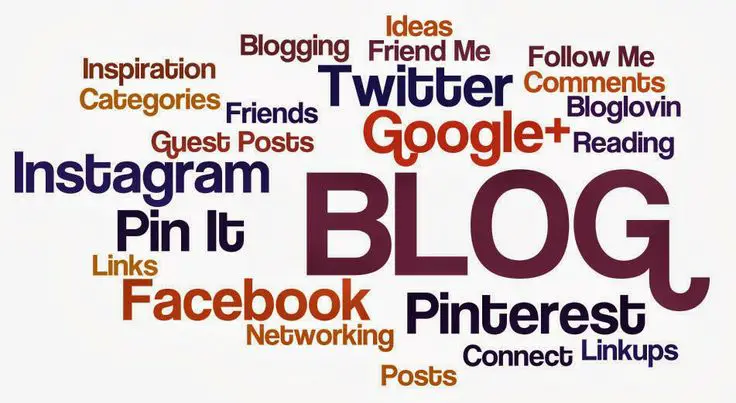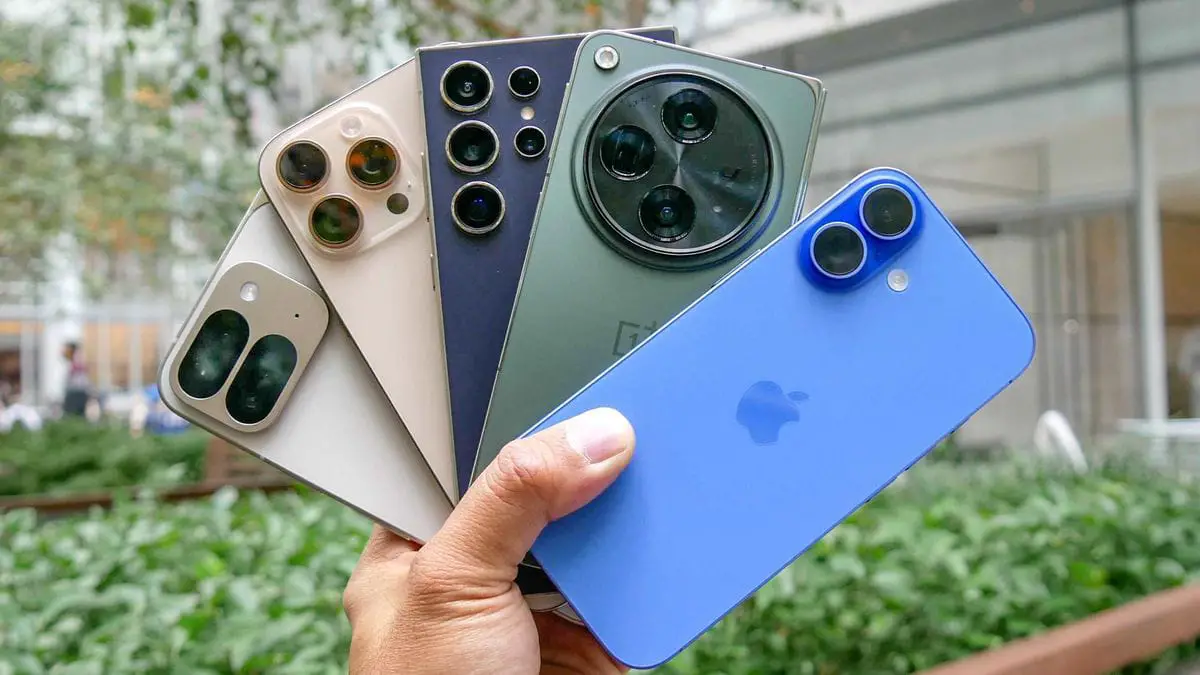The internet offers numerous benefits, serving as a global network that enables instant communication, access to vast information resources, and efficient data exchange. It facilitates worldwide connectivity, enabling people to communicate, collaborate, and share ideas across geographic boundaries. Information dissemination and access are greatly enhanced, offering educational, research, and entertainment opportunities. E-commerce and online services have transformed the way business is conducted. Additionally, it has enabled remote work and learning, expanding opportunities for individuals and organizations. The internet has revolutionized the way we interact, gather information, and conduct commerce, making it an essential part of modern life.
The Internet, a global network of interconnected computers, has evolved from its humble beginnings into a transformative force that permeates nearly every aspect of our lives. In today’s increasingly digital world, it’s difficult to imagine a day without the Internet. Whether we’re shopping online, seeking information, connecting with friends and family, or even working, the Internet plays a central role in our daily routines. In this comprehensive article, we will delve deep into the vast array of benefits that the Internet brings to individuals, businesses, and society as a whole.
1. Access to Information
The Internet is a treasure trove of information, accessible at our fingertips. It has democratized knowledge, allowing anyone with an internet connection to explore vast databases of information, research, and educational resources. This unfettered access to information has profound implications for education, research, and personal growth. From online courses and tutorials to open-access research papers and e-books, the Internet has made learning more accessible and affordable than ever.
2. Communication and Connectivity
One of the most immediate and impactful benefits of the Internet is its role in communication. It has brought the world closer together, enabling people to connect across geographic boundaries effortlessly. Email, social media, video conferencing, and instant messaging services allow us to communicate with loved ones, colleagues, and friends, regardless of their location. This newfound connectivity has transformed the way we maintain relationships and conduct business.
3. E-Commerce and Online Shopping
The rise of e-commerce is another remarkable development fueled by the Internet. Online shopping has revolutionized the retail industry, offering consumers unparalleled convenience and choice. Whether purchasing clothing, electronics, groceries, or even booking travel and accommodations, e-commerce platforms provide a plethora of options at the click of a button. Moreover, online shopping often offers better prices and the ability to read reviews and compare products, enhancing the overall shopping experience.
4. Business and Economic Growth
The Internet is a powerful catalyst for economic growth and innovation. It has paved the way for new business models and opportunities. Online businesses and startups can reach a global audience with minimal upfront costs. E-commerce, software as a service (SaaS), and digital advertising have become integral parts of the modern economy. This digital economy creates jobs, stimulates entrepreneurship, and drives economic prosperity.
5. Telecommuting and Remote Work
The Internet has made telecommuting and remote work a reality for millions of people. This shift in the way we work has benefits for both employees and employers. Remote work offers flexibility, reduces commuting stress, and can lead to better work-life balance. For businesses, it can cut overhead costs and access a global talent pool. The COVID-19 pandemic accelerated the adoption of remote work, further highlighting the importance of Internet connectivity in maintaining business operations.
6. Entertainment and Media
Entertainment options have expanded exponentially with the advent of the Internet. Streaming services for music, movies, and television series have become ubiquitous. YouTube has given rise to a new generation of content creators, while social media platforms offer a constant stream of memes, videos, and live events. The Internet has transformed the way we consume, create, and share entertainment, offering a world of choices for every taste and interest.
7. Health and Telemedicine
Telemedicine, made possible by the Internet, has transformed healthcare delivery. Patients can consult with healthcare professionals remotely, reducing the need for in-person visits and allowing for quicker access to medical advice. This not only benefits patients but also increases the efficiency of healthcare systems, particularly in times of crisis. Moreover, the Internet serves as a valuable source of health information, empowering individuals to make informed decisions about their well-being.
8. Social Networking and Community
The Internet has given rise to virtual communities and social networking. People with shared interests, hobbies, or even health conditions can connect online, regardless of their geographic locations. Social media platforms like Facebook, Twitter, and Instagram have become hubs for information exchange and social interaction. Online forums and discussion groups allow individuals to find support and camaraderie in niche communities.
9. Research and Innovation
The Internet has become an invaluable tool for researchers and innovators. It accelerates the pace of scientific discovery by facilitating collaboration and the sharing of data and findings across the globe. Crowdsourcing platforms enable citizens to participate in scientific research and innovation projects. Open-source software and online collaboration tools have fostered a culture of innovation, leading to groundbreaking developments in various fields.
10. Access to Government Services
The Internet has made government services more accessible to the public. Citizens can apply for licenses, pay taxes, and access public records online, reducing bureaucratic hurdles and saving time. E-governance initiatives have enhanced transparency and accountability in government operations, fostering citizen engagement and participation.
11. Environmental Benefits
The Internet’s role in environmental conservation and sustainability should not be underestimated. Through online platforms and apps, individuals can access information on sustainable living practices, connect with like-minded individuals, and participate in environmental activism. Moreover, the Internet enables the monitoring and management of environmental data, from weather forecasts to tracking wildlife populations and managing renewable energy systems.
12. Disaster Preparedness and Response
In times of disaster, the Internet plays a crucial role in coordinating response efforts. It enables real-time communication, information sharing, and emergency alerts. Social media platforms have been pivotal in disaster response, helping locate missing persons, organize aid, and provide up-to-the-minute information to affected communities.
13. Access to Government Services
The Internet has made government services more accessible to the public. Citizens can apply for licenses, pay taxes, and access public records online, reducing bureaucratic hurdles and saving time. E-governance initiatives have enhanced transparency and accountability in government operations, fostering citizen engagement and participation.
14. Environmental Benefits
The Internet’s role in environmental conservation and sustainability should not be underestimated. Through online platforms and apps, individuals can access information on sustainable living practices, connect with like-minded individuals, and participate in environmental activism. Moreover, the Internet enables the monitoring and management of environmental data, from weather forecasts to tracking wildlife populations and managing renewable energy systems.
15. Disaster Preparedness and Response
In times of disaster, the Internet plays a crucial role in coordinating response efforts. It enables real-time communication, information sharing, and emergency alerts. Social media platforms have been pivotal in disaster response, helping locate missing persons, organize aid, and provide up-to-the-minute information to affected communities.
16. Civic Engagement and Activism
The Internet has provided a platform for civic engagement and activism on a global scale. People can raise awareness about social and political issues, organize protests, and mobilize support for causes they are passionate about. Social media campaigns, online petitions, and crowdfunding efforts have become powerful tools for effecting change and holding institutions accountable.
17. Accessibility and Inclusion
The Internet has the potential to empower marginalized and underserved communities. It can bridge the digital divide by providing access to information, education, and economic opportunities to those who might otherwise be excluded. Efforts to improve Internet accessibility and promote digital literacy can lead to greater inclusivity in the digital age.
18. Personal Development and Hobbies
The Internet offers a myriad of opportunities for personal development and pursuing hobbies. Online courses, tutorials, and forums allow individuals to acquire new skills or delve deeper into their interests. Whether you’re interested in learning a new language, honing your culinary skills, or mastering a musical instrument, the Internet provides the resources and communities to help you achieve your goals.
19. Accessibility and Inclusion
The Internet has the potential to empower marginalized and underserved communities. It can bridge the digital divide by providing access to information, education, and economic opportunities to those who might otherwise be excluded. Efforts to improve Internet accessibility and promote digital literacy can lead to greater inclusivity in the digital age.
20. Personal Development and Hobbies
The Internet offers a myriad of opportunities for personal development and pursuing hobbies. Online courses, tutorials, and forums allow individuals to acquire new skills or delve deeper into their interests. Whether you’re interested in learning a new language, honing your culinary skills, or mastering a musical instrument, the Internet provides the resources and communities to help you achieve your goals.
21. Global Collaborations and Partnerships
The Internet has facilitated global collaborations in science, technology, art, and more. Researchers, artists, and innovators can easily connect with peers from around the world to exchange ideas, collaborate on projects, and bring diverse perspectives to problem-solving. These collaborations have the potential to drive progress in various fields.
22. Personal Empowerment and Expression
The Internet provides a platform for personal empowerment and self-expression. Blogging, vlogging, and social media have allowed individuals to share their thoughts, experiences, and creativity with a global audience. This newfound ability to express oneself has led to the rise of digital influencers and content creators, who have a significant impact on popular culture and trends.
23. Philanthropy and Fundraising
Online platforms have revolutionized philanthropy and fundraising efforts. Crowdfunding websites make it easy for individuals and organizations to raise funds for charitable causes, disaster relief, medical expenses, and creative projects. The Internet has enabled people to support causes they care about and make a positive impact on the world.
24. Political Participation and Awareness
The Internet has reshaped political participation and awareness. It allows citizens to stay informed about political issues, track government actions, and engage in discussions with fellow citizens. Social media platforms have played a significant role in political mobilization, providing a platform for advocacy, organizing rallies, and holding politicians accountable.
25. Gaming and Virtual Worlds
The Internet has given rise to the gaming industry, offering entertainment experiences that range from simple browser games to complex virtual worlds. Online multiplayer games enable players to connect with friends and compete with opponents from around the world. Additionally, virtual reality (VR) and augmented reality (AR) technologies are opening up new dimensions of immersive gaming experiences.
26. Smart Cities and IoT
The Internet of Things (IoT) has revolutionized urban living, making cities smarter and more efficient. IoT devices collect and share data, optimizing traffic flow, energy consumption, waste management, and public safety. Smart cities use technology to enhance the quality of life for residents, reduce environmental impact, and improve resource allocation.
27. Global News and Information
The Internet serves as a primary source of news and information for people worldwide. News websites, blogs, and social media platforms provide a diverse range of perspectives and up-to-the-minute updates on local and global events. This access to information fosters informed citizenship and helps hold media organizations accountable for the accuracy and transparency of their reporting.
28. Support for Entrepreneurs and Small Businesses
The Internet has leveled the playing field for entrepreneurs and small businesses. E-commerce platforms, digital marketing, and online payment systems make it easier for startups and small enterprises to compete with larger corporations. Social media marketing and online advertising help them reach their target audiences effectively and affordably.
29. Scientific Advancements
The Internet accelerates scientific advancements by facilitating the sharing of data and research findings across the globe. Collaborative research projects, online databases, and open-access journals enable scientists to work together and build upon each other’s work. This connectivity has led to breakthroughs in various scientific fields, from genetics to climate science.
30. Preservation of Cultural Heritage
The Internet provides a means to preserve and share cultural heritage. Museums, libraries, and archives digitize their collections, making art, historical documents, and artifacts accessible to a global audience. This digital preservation ensures that culture and history can be passed down to future generations.
31. Mental Health and Support
Online mental health resources and support communities have emerged as a crucial benefit of the Internet. People can access information, seek therapy, and connect with others who may be experiencing similar challenges. The Internet has reduced the stigma surrounding mental health issues and increased access to resources for those in need.
32. Convenience and Time-Saving
The Internet offers unparalleled convenience, saving individuals time and effort in various aspects of life. From online banking and bill payments to grocery delivery and ride-sharing apps, it simplifies daily tasks. Time saved on these routine activities can be redirected toward more fulfilling endeavors.
33. Personal Finance and Investment
The Internet provides tools and platforms for personal finance management and investment. People can easily access their financial accounts, track expenses, and make informed investment decisions through online resources and apps. This financial empowerment helps individuals plan for the future and achieve their financial goals.
34. Freedom of Expression and Information
The Internet has played a pivotal role in promoting freedom of expression and the flow of information. It has given a voice to those who may have been marginalized in traditional media. Individuals and organizations can use online platforms to express their ideas and opinions, challenging conventional narratives and advocating for change.
35. Innovation and Entrepreneurship
The Internet is a breeding ground for innovation and entrepreneurship. Startups and innovators can bring their ideas to life with relatively low entry barriers. Crowdfunding, open-source collaboration, and access to a global market allow for creative and innovative solutions to gain traction and succeed.
36. Customization and Personalization
The Internet has ushered in an era of customization and personalization. Whether it’s personalized product recommendations on e-commerce websites or tailored content on social media platforms, the Internet uses data and algorithms to deliver a user experience that matches individual preferences and needs.
37. Data and Analytics
Data-driven decision-making is a cornerstone of the digital age. The Internet provides a wealth of data that can be analyzed for insights and trends. Businesses and organizations can leverage this data to optimize their operations, improve customer experiences, and drive innovation.
38. Evolution of Education
The Internet has revolutionized education, making it more accessible, flexible, and adaptive. Online learning platforms offer a diverse range of courses and programs that cater to different learning styles. It allows learners to progress at their own pace, and the proliferation of educational resources has the potential to democratize knowledge further.
39. Intellectual Property and Copyright
The Internet has forced a reevaluation of intellectual property and copyright laws. With digital content easily shareable, issues of piracy and copyright infringement have become more complex. New models of intellectual property management and monetization have emerged, fostering discussions on the balance between protecting creators’ rights and promoting accessibility.
40. Crowdsourcing and Crowdfunding
Crowdsourcing and crowdfunding have become prominent methods for generating support and funding for projects, ideas, and causes. Through platforms like Kickstarter and Indiegogo, individuals and organizations can present their concepts to a global audience and raise capital to bring them to fruition.
41. Space Exploration
The Internet has had a profound impact on space exploration. It enables real-time communication with spacecraft and rovers on distant planets, connects researchers worldwide, and allows the public to participate in space-related projects and missions. The Internet has made space exploration more accessible and engaging for a global audience.
Conclusion
The Internet has ushered in a transformative era of unparalleled benefits for society. Its impact on communication, information access, and commerce has revolutionized the way we live and work. First and foremost, the Internet has brought the world closer together, breaking down geographical barriers and fostering global connectivity. It has democratized information, enabling people to access a vast repository of knowledge, promoting education and research. Additionally, the Internet has revolutionized commerce by creating new business opportunities, facilitating e-commerce, and supporting the growth of the digital economy. Furthermore, the Internet has improved access to healthcare and services, making telemedicine and remote work more accessible. It has empowered individuals to express their opinions and engage in activism and advocacy, giving voice to marginalized communities. Moreover, it has enhanced entertainment and leisure, offering endless options for streaming, gaming, and social interaction. In sum, the Internet’s multifaceted benefits encompass increased communication, global information dissemination, economic growth, enhanced healthcare access, empowerment of marginalized groups, and enriched leisure experiences. Its profound influence has transformed the way we live, work, and interact, making it an indispensable tool in the modern world.







Leave a Reply